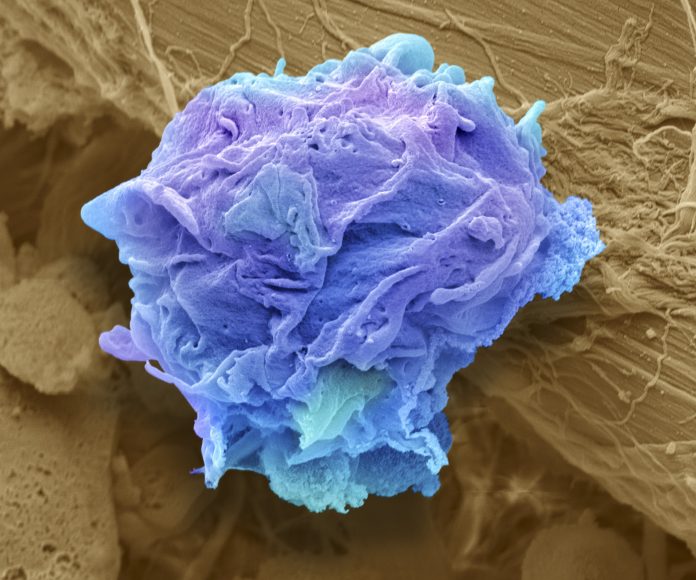
A chimeric antigen receptor (CAR) T-cell therapy with a new cellular binding mechanism targeting CD19 has achieved good results in a Phase I trial in patients with relapsed or refractory B cell non-Hodgkin’s lymphoma.
As reported in the journal Molecular Cancer, the new therapy had an overall response rate of 91.7% in 12 patients, but this increased to 100% in the two higher dose groups.
“CD19-directed CAR T-cell therapies have shown impressive clinical outcomes in CD19+ B-cell malignancies. However, a significant fraction of patients still fails to achieve a complete response (CR) or eventually relapse… with different relapse rates based on specific diseases,” write the authors.
“The quality of the interaction between CAR and CD19 on tumor cells is a critical factor governing CAR T-cell function.”
All of the four currently approved CAR T-cell therapies that target CD19 utilize the same cellular binding method, namely, the FMC63 single-chain variable fragment specific to a CD19 membrane-distal epitope. This method is characterized by slow binding and dissociation rates.
The new autologous CAR T-cell therapy developed by South Korean biotech company AbClon Inc, uses a different binding method and targets an alternative CD19 epitope that is independent of FMC63 and has faster binding and dissociation rates.
“We’ve learned that the way you design your CAR really matters. Designing a different CAR might drastically change the way the T cells work, potentially allowing that CAR T cell product to work where other CAR T cell products have failed,” said co-lead author Marco Ruella, an assistant professor at the Perelman Center for Advanced Medicine at the University of Pennsylvania.
The study was carried out in South Korea and is a collaboration between Korean biotech company AbClon Inc, the University of Ulsan College of Medicine in Seoul and the University of Pennsylvania.
The trial started with a safety test in the first 6 patients and then a further six patients were enrolled. Overall, six patients had the lowest dose (0.2 × 106 cells/kg), three a medium dose (1.0 × 106 cells/kg) and three a high dose (5.0 × 106 cells/kg) of the therapy.
There were no infusion related adverse events. Around 58% of the participants had a grade 3 or above adverse event, the most common of which was neutropenia thought to be related to chemotherapy treatment.
One patient did not respond to the therapy, but the other 11 did respond. After a median of 9.3 months follow up, progression-free survival was seen in 75% of the group. Overall survival was 82.5%. When only the two higher dose groups were considered, over a median of six and a half months follow up in this group, all patients had a complete response with no signs of relapse.
“We were not expecting such a drastic early difference in this study. The CART19 products that are already FDA-approved are very effective, and it’s not easy to do better,” said Ruella. “While there is not a randomized trial of this product yet, the initial results seem very promising, and we look forward to moving into the planned Phase II portion of the study.”













